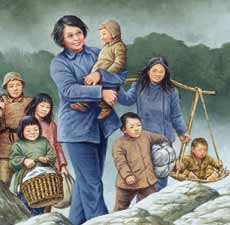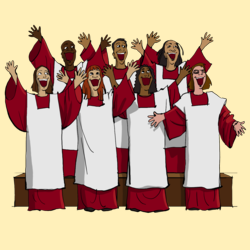 Today is the 173rd anniversary of The Great Disappointment, the day in 1844 when New York farmer William Miller had confidently predicted that Jesus would return. His original prediction had been for some time in the year 21 March 1843 to 21 March 1844, but nothing had happened by 21 March 1844, so Miller had to confess his chronological error and accept a “tarrying time” of seven months and ten days proposed by one of his followers based on Hab 2:3 and Lev 25:9, so 22 October 1844 became the new date.
Today is the 173rd anniversary of The Great Disappointment, the day in 1844 when New York farmer William Miller had confidently predicted that Jesus would return. His original prediction had been for some time in the year 21 March 1843 to 21 March 1844, but nothing had happened by 21 March 1844, so Miller had to confess his chronological error and accept a “tarrying time” of seven months and ten days proposed by one of his followers based on Hab 2:3 and Lev 25:9, so 22 October 1844 became the new date.
Miller’s calculations were based on the prophecy of Daniel 8:14, “It will take 2,300 evenings and mornings; then the sanctuary will be reconsecrated,” when read in conjunction with James Ussher’s calculation that the prophecy was made in 457 BC. By the way, James Ussher was the 17th Century scholar who calculated that the world was created on this day, 22 October, in the year 4004 BC, at 9am Greenwich Mean Time. So, if you’re prepared to swallow some curious presuppositions, happy 6010th birthday, world!
Most of Miller’s followers were disillusioned by the failure of his predictions, but one small group, led by James White and Ellen Gould White, refused to believe that the predictions had been wrong. They believed that Christ did in fact purge the sanctuary on 22 October 1844, but the sanctuary was in heaven rather than on earth. This group became known as the Seventh Day Adventist Church. That’s something for you to think about when next you munch on your Seventh-Day-Adventist-produced Weet-Bix.








